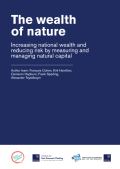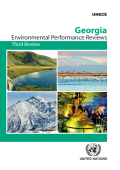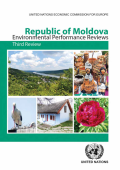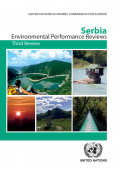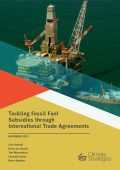
The report Tackling Fossil Fuel Subsidies through International Trade Agreements analyses the compatibility of five selected fossil fuel support measures in the Group of 20 (G20) countries with the WTO’s 1994 Agreement on Subsidies and Countervailing Measures (ASCM). The exercise has never been attempted before, and doing so, it identifies some of the key legal questions and challenges faced at the WTO.
Specifically, the findings highlight the difficulty of litigating fossil fuel consumption subsidies, measures that remain substantial. While enhanced transparency could help address some of the challenges complainants may face, fossil fuel subsidy notification rates within the WTO system remain disappointingly low.
In light of these shortcomings, the paper identifies five complementary avenues for reform of international trade policy to enable countries to better address fossil fuel subsidies:
